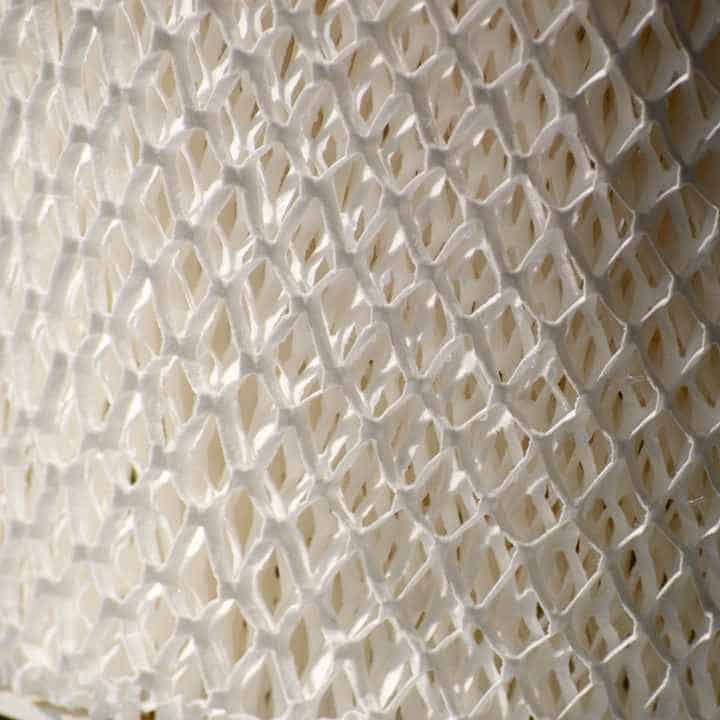A HEPA filter must meet specific standards set by the United States Environmental Protection Agency (EPA).
Filters that meet these standards are called true HEPA filters. Filters that don’t meet the standard may still be called HEPA, but they won’t provide the same level of protection from allergens and other pollutants.
To ensure you get the best air quality possible in your home, it’s important to know the difference between HEPA and true HEPA filters.
HEPA vs True HEPA: What is The Difference?
The terms “HEPA” and “True HEPA” are often used interchangeably, but there is a significant difference between the two types of filters.
The true HEPA stands for High-Efficiency Particulate Air, and it is a type of air filter designed to remove at least 99.97% of particles that are 0.3 microns in size from the air that passes through it.

If any HEPA filter does not the above standards then they are considered a HEPA filter, not a true HEPA filter.
As a result, True HEPA filters are much better at trapping tiny particles such as smoke, dust, and pollen, making them an ideal choice for people who suffer from allergies or asthma.
Can HEPA Filters be Fake?
However, some unscrupulous manufacturers have been known to sell fake HEPA filters that do not meet the strict standards set by the United States Department of Energy(DOE).
These fake filters may look similar to genuine HEPA filters, but they can be up to 70% less effective at trapping particles.
As a result, they provide little in the way of protection against airborne pollutants. If you are considering purchasing a HEPA filter, it is important to make sure that it is certified by the DOE.
Only then can you be sure that you are getting a product that meets the highest standards for air filtration.
Type of HEPA Filter That is Available on Market
HEPA filters have different terms depending on the manufacturers. That can be deceiving sometimes what we want as our air filter.
Here are some prime examples of HEPA filters with different terms. They not only have different names but also have different specifications.
Let’s see some of the common terms of the HEPA filter available on the market:
UltraHEPA Filter
UltraHEPA is a type of air filter that is designed to trap ultrafine particles. Ultrafine particles are those that are less than 0.003 microns in diameter.
UltraHEPA filters are designed to be more effective than traditional HEPA filters at trapping these ultrafine particles.
As a result, they are often used in hospitals and other places where air quality is critical. UltraHEPA filters are also used in some vacuum cleaners and air purifiers.
While they are more expensive than traditional HEPA filters, many people believe that they are worth the price for the improved air quality that they provide.
Permanent HEPA Filter
When it comes to indoor air quality, permanent HEPA filters are often considered the gold standard.
Unlike their disposable counterparts, permanent HEPA filters can be used for years, making them a more cost-effective solution in the long run.
Permanent HEPA filters are made of tightly woven fibers that capture particles as small as 0.3 microns in size.
Permanent HEPA filters are washable, you need to wash them regularly. If you miss them cleaning the filter then it will harm the filter.
And also every time you wash your filter, they become less effective.
HEPASilent
HEPASilent is a type of air purifier that uses a combination of mechanical and electrical filters to remove pollutants from the air.
HEPASilent filter uses an electromagnetic field to capture airborne particles. Although they are pretty good when it comes to filtration they are not original HEPA.
True HEPA
True HEPA is a type of air filter designed to remove 99.97% of airborne particles that are 0.3 microns or larger.
HEPA filters are made from a dense web of fibers, and the air is forced through this web to be purified.
No products found.
While True HEPA filters are very effective at trapping particles, they can also become clogged over time, which reduces their efficiency.
To combat this issue, some air purifiers come equipped with a pre-filter that helps to capture larger particles before they reach the True HEPA filter.
This helps to prolong the life of the True HEPA filter and ensures that it continues to operate at peak performance.
Are True HEPA Filters Worth It?
True HEPA filters are designed to capture 99.97% of all particles that are 0.3 microns or larger. This includes common allergens like dust mites, pollen, and pet dander, as well as smoke.
In comparison, lower-quality HEPA filters may only capture between 70-80% of these particles. As you can see, there’s a big difference in terms of efficacy.
In addition to being more effective at capturing airborne particles, true HEPA filters also last longer than their lower-quality counterparts.
True HEPA filters can typically be used for up to 12 months before they need to be replaced, while lower-quality filters may only last for 3-6 months.
[elementor-template id=”2495″]
So if you’re looking for an air purifier that will better protect your family from allergens and other airborne particles, a true HEPA filter is definitely worth the investment.
Conclusion
When it comes to air purifiers, not all filters are created equal. There’s a big difference between a “true” HEPA filter and a lower-quality one.
A true HEPA filter is designed to capture 99.97% of all particles that are 0.3 microns or larger, while a lower quality HEPA filter may only capture between 70-80% of these particles.